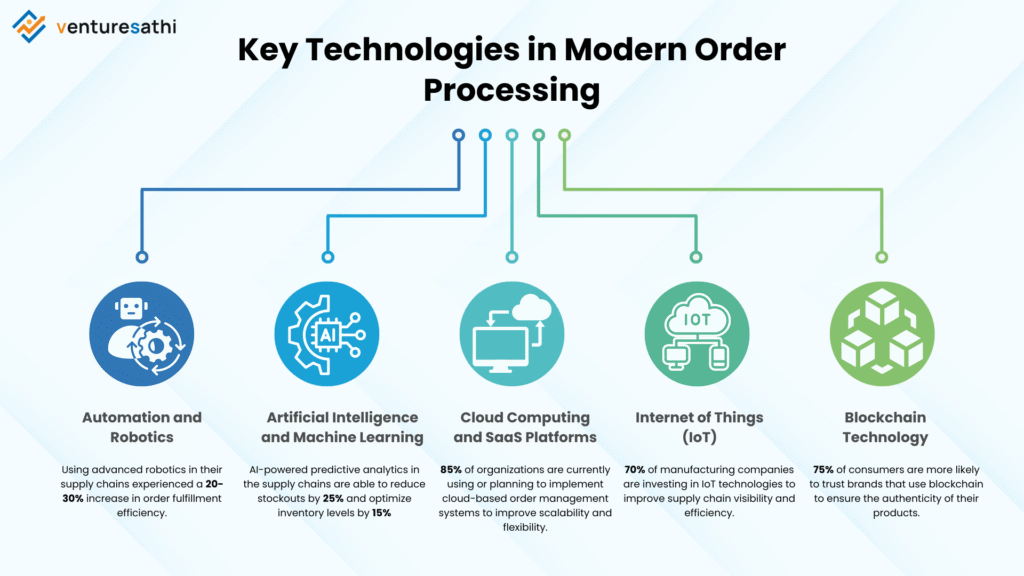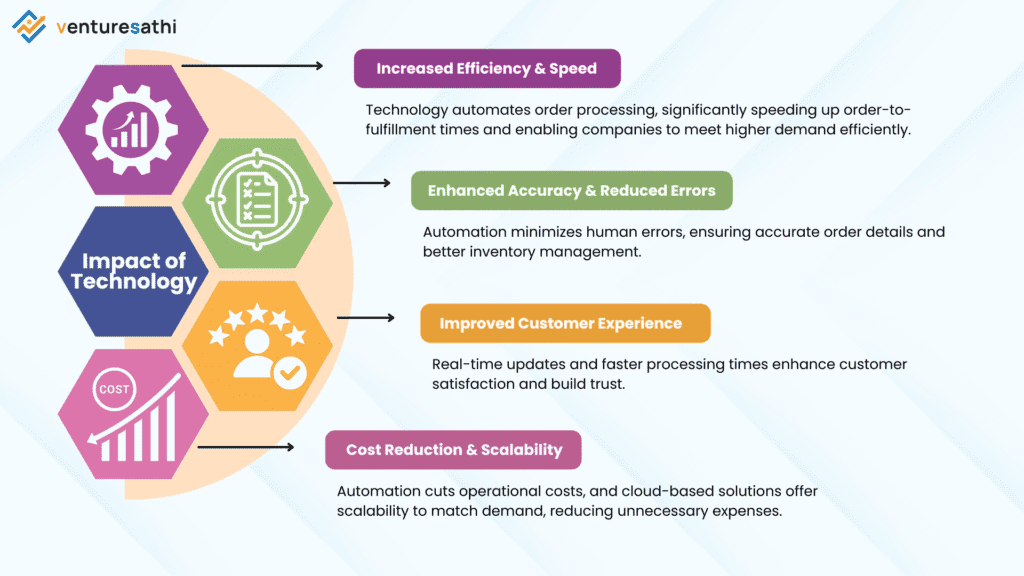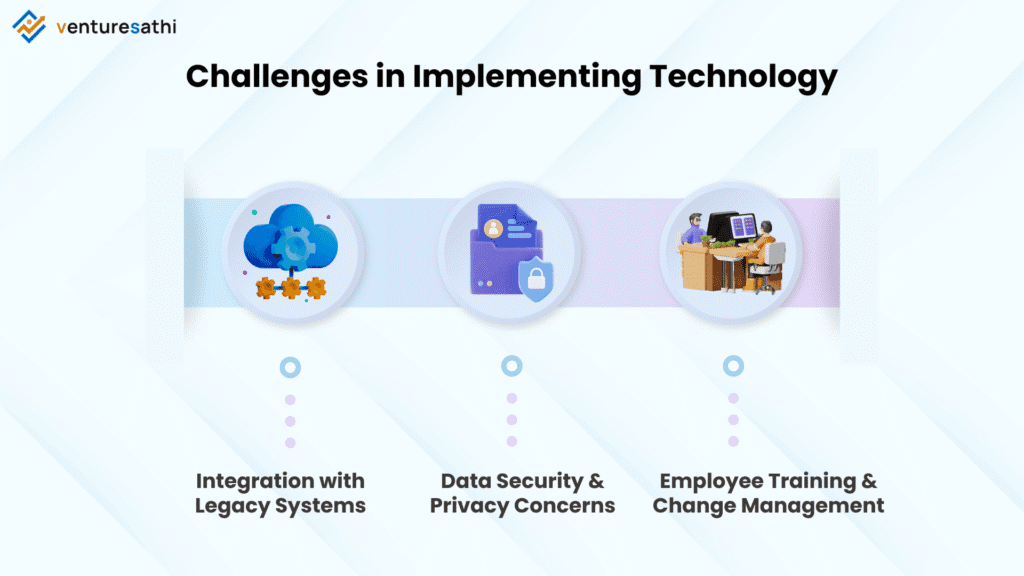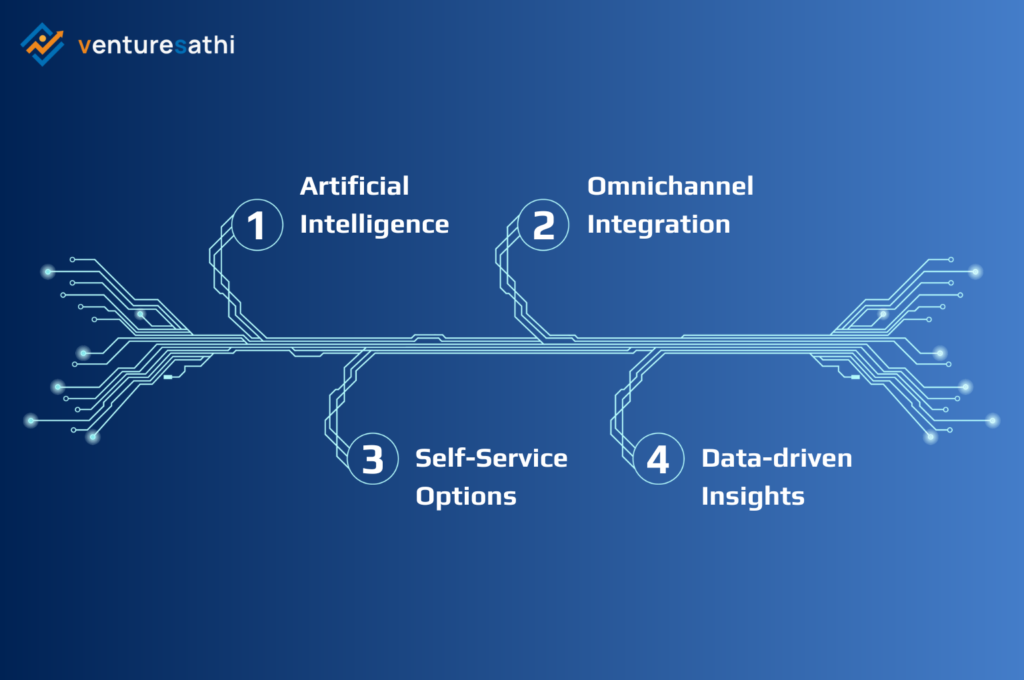Efficient order processing is the backbone of modern businesses. By streamlining operations and delivering timely orders, companies can enhance customer satisfaction and gain a competitive edge.
This article will explore how technology has transformed order processing, making it faster, more accurate, and more aligned with customer expectations. The pivotal role that advanced technological solutions play in streamlining operations and improving overall business performance.
The Evolution of Order Processing
Order processing has evolved dramatically over the past few decades. Originally, it was manual and paper-based, requiring substantial human effort to enter order details, process payments, and manage inventory. This led to inefficiencies, such as lost orders and delayed shipments, increasing operational costs and customer dissatisfaction.
The introduction of technology, including ERP systems and barcode scanners, began to automate these processes, enhancing accuracy and speed. The real transformation came with advanced technologies like automation, artificial intelligence, and cloud computing, which have fundamentally reshaped order processing.
Experience seamless order processing—Contact Venturesathi’s contact center services and optimize your customer service and fulfillment.
Key Technologies in Modern Order Processing

Automation and Robotics:
Automation streamlines order processing by reducing human error and speeding up tasks like data entry and inventory updates, while robotics enhances warehouse efficiency by enabling faster, 24/7 operations. A study by McKinsey & Company found that companies using advanced robotics in their supply chains experienced a 20-30% increase in order fulfillment efficiency.
Artificial Intelligence and Machine Learning:
AI and ML improve order processing through predictive analytics for accurate demand forecasting and optimized order routing, reducing delivery times and shipping costs. A study by Accenture found that companies using AI-powered predictive analytics in their supply chains were able to reduce stockouts by 25% and optimize inventory levels by 15%.
Cloud Computing and SaaS Platforms:
Cloud-based OMS offers scalability and real-time data access, facilitating better decision-making and seamless integration with other business systems like CRM and ERP. A survey by Capgemini showed that 85% of organizations are currently using or planning to implement cloud-based order management systems to improve scalability and flexibility.
Internet of Things (IoT):
IoT devices provide real-time order tracking and inventory management, ensuring accuracy and transparency throughout the order processing and fulfillment process. A study by McKinsey & Company found that 70% of manufacturing companies are investing in IoT technologies to improve supply chain visibility and efficiency.
Blockchain Technology:
Blockchain ensures secure, transparent transactions in order processing, enhancing trust by providing a tamper-proof ledger for tracking product authenticity and traceability. A study by IBM found that 75% of consumers are more likely to trust brands that use blockchain to ensure the authenticity of their products.
The Impact of Technology on Order Processing

Increased Efficiency and Speed:
Technology accelerates order processing, allowing automated systems to handle tasks much faster than manual methods, enabling companies to fulfil orders quickly, meet customer demands efficiently, and manage higher volumes without compromising quality.
Enhanced Accuracy and Reduced Errors:
The technology minimizes human error by ensuring accurate data entry and using AI to detect potential issues, leading to fewer mistakes, improved inventory management, and reduced costs from incorrect shipments.
Improved Customer Experience:
Real-time updates from IoT devices and cloud systems keep customers informed about their orders, fostering trust and satisfaction, while faster processing and accurate fulfillment enhance customer loyalty and encourage repeat business.
Cost Reduction and Scalability:
Technology reduces operational costs by automating labor-intensive tasks and provides scalable cloud solutions, allowing businesses to adjust their resources according to demand, making it easier to manage seasonal order fluctuations without incurring unnecessary expenses.
Challenges in Implementing Technology in Order Processing

Integration with Legacy Systems:
One of the challenges companies face when implementing new technologies in order processing is integrating them with existing legacy systems. Many businesses still rely on outdated systems that are not easily compatible with modern technologies.
This can lead to disruptions during the transition period and may require significant investment in IT infrastructure. However, with the right strategies and planning, companies can achieve seamless integration and unlock the full potential of new technologies.
Data Security and Privacy Concerns:
As companies adopt new technologies, data security and privacy become critical concerns. The increased reliance on digital systems and cloud-based platforms means that customer data is more vulnerable to cyber threats.
To mitigate these risks, companies must implement robust security measures such as encryption, multi-factor authentication, and regular security audits. Technologies like blockchain can also enhance data security by providing a secure and transparent ledger for tracking transactions.
Employee Training and Change Management:
The successful implementation of technology in order processing requires employees to be adequately trained to use new systems and tools. This can be challenging, especially in organizations where employees are accustomed to traditional methods.
Change management strategies, including comprehensive training programs and clear communication, are essential to ensure that employees embrace the new technologies and understand their benefits. By involving employees in the transition process and providing continuous support, companies can foster a culture of innovation and adaptability.
Future Trends in Order Processing Technology
Future advancements in AI and machine learning will enhance order processing with more sophisticated predictive analytics and personalized customer experiences. AI will better anticipate customer needs, while machine learning will tailor order processing and delivery to individual preferences.
IoT devices will drive the growth of smart warehouses, automating and connecting every aspect of order processing. Sensors will monitor inventory, track goods, and optimize space usage, boosting efficiency and accuracy.
Sustainability will shape future trends in order processing. Expect more eco-friendly technologies, such as renewable energy in warehouses, green packaging solutions, and optimized logistics to reduce carbon emissions.
EndNote
Technology has transformed order processing with advancements in automation, AI, IoT, and blockchain, enhancing efficiency, accuracy, and customer satisfaction. However, challenges such as integrating legacy systems, ensuring data security, and providing employee training persist. By staying informed on trends and implementing the right strategies, businesses can overcome these obstacles and unlock the full potential of technology. Partnering with a tech-focused contact center can help navigate this dynamic landscape and sustain a competitive edge in delivering exceptional customer experiences.
Transform your customer experience with Venturesathi’s innovative contact center services. Contact us today to start optimizing your operations.


